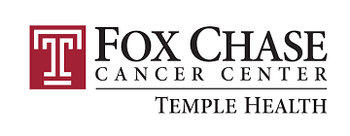
Approximately 19.2% of American adults are caregivers for individuals 18 years or older. An estimated 6% care for a loved one with cancer.

Approximately 19.2% of American adults are caregivers for individuals 18 years or older. An estimated 6% care for a loved one with cancer.

Each month, we take a look back at the most popular Oncology Nursing News® stories. Here are the top 5 stories from October 2022.

Following CAR T-cell therapy, the onset of hypophosphatemia may represent a biomarker for immune effector cell–associated neurotoxicity syndrome incidence and severity.

Buying one for your practice or enhancing the one you have will help you cut costs and boost your financial stability.

A regimen of cediranib and olaparib improved radiographic progression-free survival in patients with metastatic castration-resistant prostate cancer compared with olaparib monotherapy. However, the rate of dose reductions was doubled with the combination.

A presentation at the 2022 ESMO Congress found that xevinapant plus chemoradiotherapy decreased the risk of death by twice that of placebo for patients with unresectable, locally advanced head and neck squamous cell carcinoma.

"Over the last decade, the landscape of systemic anti-cancer therapy has changed dramatically following the approvals of multiple new targeted therapies," - Kerin Adelson, MD.

When engaging with a family member of a patient who has died, nurses should consider using immediate interventions aimed at supporting the loved ones who are in shock and in pain following their loss.

Liz-Hunter Brack, RN, discusses how oncology nurses can play an important role in patient education surrounding genetic testing.

Patients with multiple myeloma who have already undergone 4 lines of therapy, including a proteasome inhibitor, an immunomodulatory agent, and an anti-CD38 monoclonal antibody, may now receive treatment with teclistamab-cqyv (Tecvayli).

Concurrent treatment with reirradiation and bevacizumab prolonged progression-free survival, but not overall survival, in patients with recurrent glioblastoma.

Sri Kota, MSN, BA, RN, OCN, unpacks data from the phase 3 TROPiCS-02 trial and highlights what nurses should know about sacituzumab govitecan for patients with advanced hormone receptor–positive, HER2-negative breast cancer.

Katie Couric is educating the public about the importance of ultrasounds for women with dense breasts.

At a follow-up of 60-months, investigators found that breast cancer survivors with higher C-reactive protein counts reported worse cognitive function over time.

The combination of durvalumab and tremelimumab has been approved for patients with unresectable hepatocellular carcinoma. The combination comes with warnings for immune-related adverse events and infusion reactions.

Patients with completely resected stage IIB or IIC melanoma who received adjuvant nivolumab experienced a 58% reduction in the risk of recurrence or death.

Patients with heavily pretreated clear cell gynecologic cancer achieved encouraging responses with single-agent pembrolizumab.

The overall survival benefit associated with pembrolizumab for patients with head and neck cancer continued to be observed at a 4-year follow-up of the KEYNOTE-048 trial.

HER2-directed antibody-drug conjugates (ADCs) play an important role in the treatment of breast and gastric cancer.


A 5-year follow-up of the COLOMBUS trial showed that encorafenib plus binimetinib continued to provide clinical benefit for patients with melanoma harboring a BRAF V600 mutation.

Linda Laskowski-Jones, MS, APRN, ACNS-BC, CEN, NEA-BC, FAAN, discusses how oncology nurse leaders can help improve working environments for their staff.

A multidisciplinary intervention to address financial toxicity led to improved overall survival rates for patients with blood cancers.

Holistic options like acupuncture and music therapy may benefit those undergoing cancer treatment.

An analysis of patient-reported outcomes showed that patients with advanced ovarian cancer experienced fewer abdominal or gastrointestinal toxicities with mirvetuximab soravtansine than with chemotherapy.

The more chronic conditions patients have, the more likely they are to be in debt.

Selpercatinib demonstrated a promising efficacy profile in patients with RET-fusion positive solid tumors.

Phase 2 findings indicate that a combination of avelumab and axitinib may draw promising responses in patients with advanced type B3 thymoma and thymic carcinoma.

A subgroup of the phase 3 GLOW trial revealed a unique relationship between undetectable minimal residual disease status and progression-free survival in elderly or unfit patients with chronic lymphocytic leukemia who received ibrutinib plus venetoclax.

Following promising efficacy data from the phase 3 TROPiCS-02 trial, the FDA has granted sacituzumab govitecan priority review status on the indication of HR+/HER2 metastatic breast cancer.